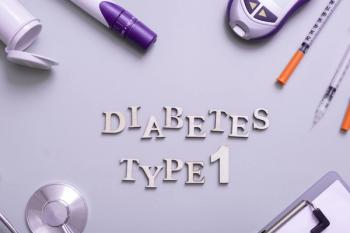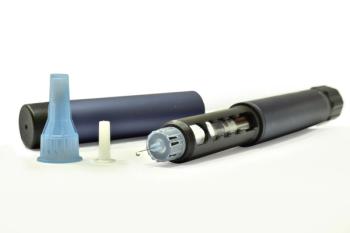
- Drug Topics April 2021
- Volume 165
- Issue 4
New Drug Review: Voclosporin for Lupus Nephritis
On January 22, 2021, the FDA approved voclosporin (Lupkynis; Aurinia Pharmaceuticals) for the treatment of adult patients with active lupus nephritis (LN) in combination with a background immunosuppressive therapy regimen. Voclosporin is an oral calcineurin inhibitor immunosuppressant. Its activity results in inhibition of lymphocyte proliferation, production of T-cell cytokines, and expression of T-cell activation surface antigens. This is the first FDA-approved oral therapy for LN, a condition that can cause irreversible kidney damage and increase risk of kidney failure, cardiac events, and death.
Efficacy
The results of a 52-week randomized, double-blind, placebo-controlled trial (NCT03021499) demonstrate the efficacy of voclosporin in participants with a diagnosis of systemic lupus erythematosus and class III or IV LN (alone or in combination with class V LN) or class V LN. Renal biopsy was performed to classify LN based on the International Society of Nephrology/Renal Pathology Society’s standards. A total of 357 participants were randomized to receive either voclosporin 23.7 mg twice daily (n = 179) or placebo (n = 178). All participants received background immunosuppressant therapy (ie, oral mycophenolate mofetil [MMF] targeted to a dose of 1 gram twice daily and corticosteroid therapy adjusted to achieve a dose of 2.5 mg/d by week 16 of the study). The primary efficacy end point of the study is the proportion of patients achieving complete renal response at week 52; urine protein/creatinine ratio (UPCR) of less than or equal to 0.5 mg/mg and estimated glomerular filtration rate (eGFR) greater than or equal to 60 mL/min/1.73 m2 or no confirmed decrease from baseline in eGFR of greater than 20% or no treatment- or disease-related eGFR-associated event (ie, decrease in renal creatinine clearance or glomerular filtration rate, or increase in blood creatinine, serum creatinine, renal impairment, renal failure, or acute renal failure) at time of assessment. At week 52, a higher proportion of participants achieved complete renal response in the voclosporin arm than the placebo arm (40.8% vs 22.5%; OR, 2.7; 95% CI, 1.6-4.3; P < .001). Moreover, administration of voclosporin compared with placebo is associated with a reduction in the time to UPCR of less than or equal to 0.5 mg/mg (median time of 169 days vs 372 days; HR, 2.0; 95% CI, 1.5-2.7). Overall, a greater proportion of participants who received voclosporin for 1 year in addition to background therapy achieved a reduction in kidney inflammation in comparison with those who received background therapy alone.
Safety
Prior to initiating therapy with voclosporin, obtain a baseline eGFR and blood pressure. Monitor renal function and blood pressure regularly throughout treatment with voclosporin. The most common adverse effects (AEs) include decreased eGFR (26%), hypertension (19%), diarrhea (19%), headache (15%), anemia (12%), and cough (11%). Other potential AEs include lymphoma, serious infections, nephrotoxicity, neurotoxicity, hyperkalemia, corrected QT interval prolongation, and pure red cell aplasia.
Voclosporin is a CYP3A4 substrate. Coadministration with moderate and strong CYP3A4 inducers should be avoided. Voclosporin is a P-glycoprotein inhibitor; other medications may require a dose reduction when used in combination with voclosporin. Dose adjustments are recommended in severe renal impairment and mild to moderate hepatic impairment. Voclosporin should be avoided in pregnant patients because of the alcohol content of the drug formulation. Patients taking voclosporin should avoid live vaccines.
Drug administration
Voclosporin is administered as a 7.9-mg capsule. It must be swallowed whole on an empty stomach. Recommended starting dose is 23.7 mg orally every 12 hours. Voclosporin is approved in combination with MMF and corticosteroids. Concomitant administration of voclosporin and cyclophosphamide should be avoided; further study is required to establish safety and efficacy of the combination. Do not stop or change the dose of voclosporin without consulting a health care provider.
Reference
- Lupkynis. Prescribing information. Aurinia Pharmaceuticals; 2021. Accessed March 8, 2021. https://www.accessdata.fda.gov/drugsatfda_docs/label/2021/213716s000lbl.pdf
Articles in this issue
almost 5 years ago
Reducing Pharmaceutical Waste in the Storealmost 5 years ago
Pharmacy in the Era of Telehealthalmost 5 years ago
Become That Someone for Your Patientsalmost 5 years ago
Chemotherapy Stewardships Becoming Increasingly Vitalalmost 5 years ago
New Drug Approval Update: Therapies Pharmacies Should Knowalmost 5 years ago
Assess and Manage Your Pharmacy’s Profitabilityalmost 5 years ago
Updates in Pharmacy-Based Immunization Practicesalmost 5 years ago
COVID-19 Therapy Pipeline UpdateNewsletter
Pharmacy practice is always changing. Stay ahead of the curve with the Drug Topics newsletter and get the latest drug information, industry trends, and patient care tips.























